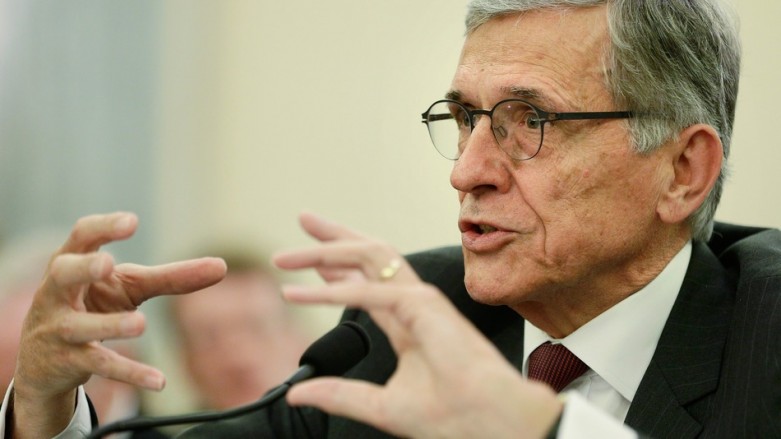
Why the FCC Matters
This week Tom Wheeler became the new chairman of the Federal Communications Commission. He comes to power at a unique moment: Net Neutrality is under attack in the courts, TV companies are finding sneaky new ways to consolidate, and phone and cable companies are pursuing a deregulatory agenda that could cut off essential communications services for millions.
The FCC can move at a sluggish pace and too often it fails to act in the public interest. But like it or not, the FCC is essential to the future of the media in the U.S.
Without the FCC, we'll have no guarantee that we can access the websites we want, call who we want, or say what we want online. In fact, without an FCC that’s accountable to us, and not big business, we'll have no assurance that the media we depend on will function at all.
The cable connections we use to get online, our mobile phones, the TV shows we love, the news we read, the radio stations we tune to, the new technologies we crave — all are part of our media system. It’s critical to keep these technologies open and available to everyone, and to preserve our right to access the information we need. And as the law stands, only the FCC has the authority to regulate all of this.
And an open, diverse and vibrant media system is like oxygen: Democracy depends on it.
But big companies are notorious for abusing users of media and technology. And when new technologies are unleashed, companies try to close them down and gobble them up, making new media less useful, more expensive and further out of reach.
In the dial-up Internet era, we had thousands of independent Internet service providers; now we have a handful. Once we had thousands of independent radio stations, each reflecting local flavor and culture; now we have robots spinning the same songs across the land. As we've seen time and again, media consolidation hurts the public: Fewer voices and opinions are heard, power isn't challenged and communities suffer.
The FCC was created to oversee new communications networks that emerged in the early 20th century. And as the Internet continues to change our ideas about what it means to connect and communicate, it’s more important than ever that the FCC take the right steps to protect open networks and promote diverse and independent media.
Below is Free Press' six-point plan for FCC Chairman Tom Wheeler. As he tackles the big questions about the future of media in the U.S., we hope he sees his agency’s role in all of this as we do.
Here’s how the FCC should ensure that our public network and public airwaves provide better choices and more voices — by maintaining universal communications service, increasing media diversity, supporting local news and emphasizing political transparency.
Preserve the Public’s Network. Broadband is now our basic communications platform, but the FCC has failed to keep this public infrastructure open and available to all. The new chairman needs to clarify and use the agency’s authority to make broadband accessible, reliable and affordable for everyone.
Protect Internet Freedom. Broadband providers shouldn’t decide which websites, apps or devices you can use online. Verizon has challenged the FCC’s Open Internet rules in court to claim that right. Whatever that case’s outcome, the new chairman needs to enforce the existing rules and strengthen Net Neutrality going forward
Provide Broadband Choices. The new chairman needs to increase our choices among broadband service providers with policies that foster competition, lower prices and expand access for everyone. There are many ways the agency can accomplish this. One is striking the right balance in the upcoming incentive auction to promote competition among wireless carriers and open more spectrum for innovative uses like Wi-Fi.
Promote Media Diversity. We need a media system that reflects our nation’s growing diversity. The FCC has a mandate to make our media more local and accountable. The new chairman needs to improve the FCC’s broadcast ownership rules to enable more diverse ownership of radio and TV stations. The FCC should also stop companies from using every trick in the book to grow their empires.
Prioritize Political Transparency. The FCC has the power and responsibility to require transparency from political advertisers and broadcasters. The new chairman should better inform voters by making funders put their names in the political ads they’re bankrolling.
Put People Back Into the Process. The new chairman has worked with corporate interests in Washington for many years. One of the first things that he and the other commissioners should do is go outside the Beltway, get away from the lobbyists and meet face to face with the people they’ve been appointed to serve.